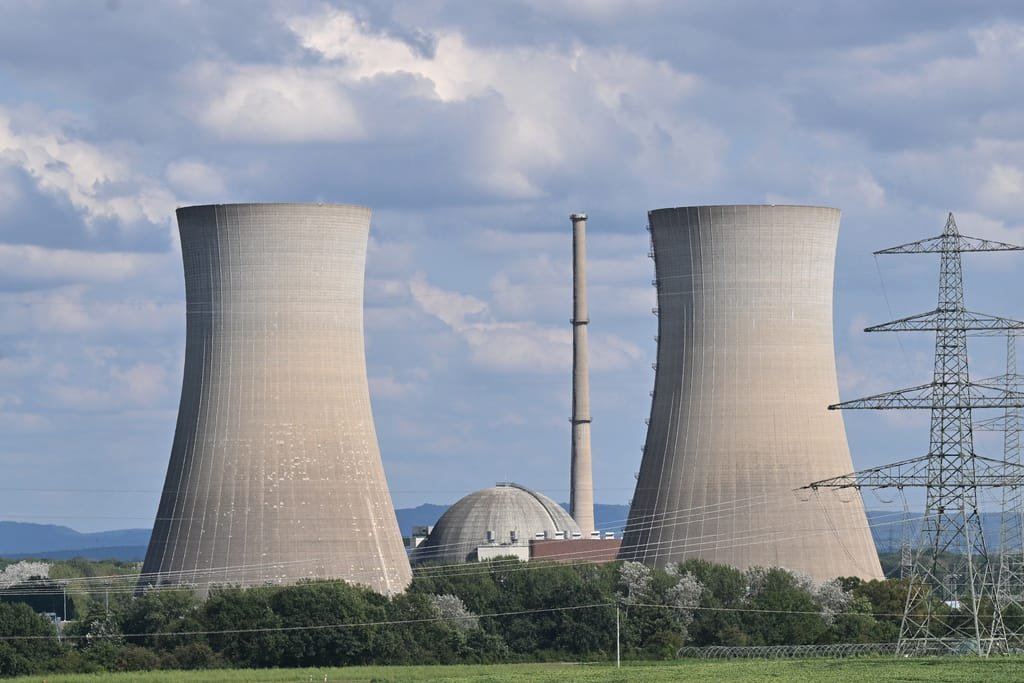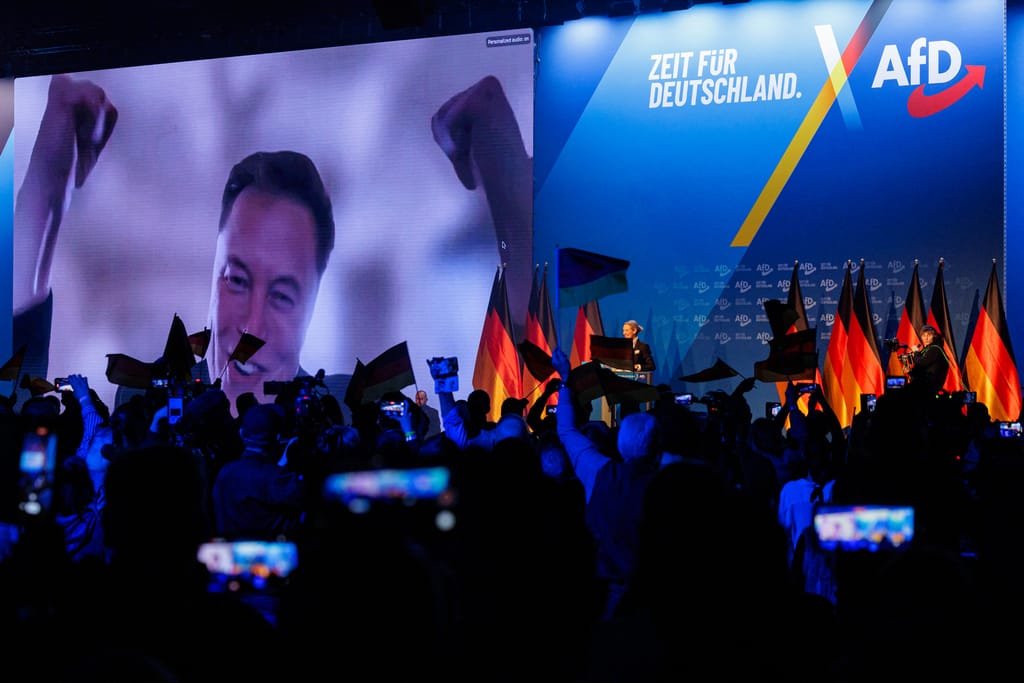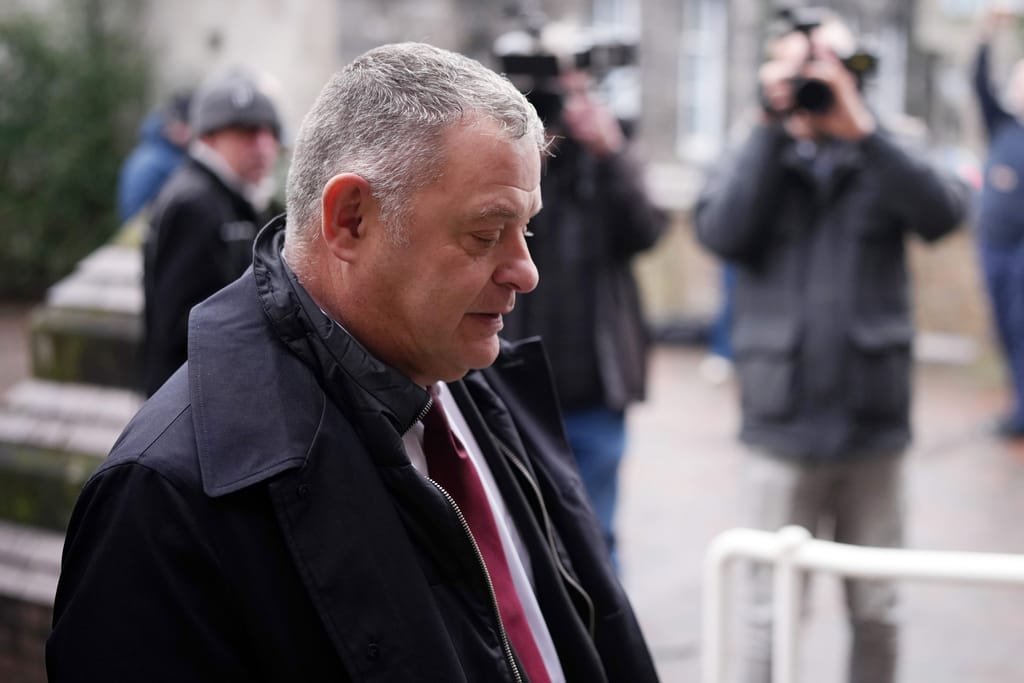Pro-atomic countries are optimistic that center-right winner Friedrich Merz can help ease the EU’s never-ending nuclear spat.

BRUSSELS — They might not know it yet, but Germans helped put one of the European Union’s oldest and most polarizing debates to bed when they voted this past weekend.
At least that’s the hope from the EU’s pro-nuclear countries. That cabal of around a dozen capitals is looking expectantly at Friedrich Merz, the center-right leader who has vowed to ease the taboo on atomic power. Merz is in line to become chancellor after his party won the most votes in Sunday’s election.
That could, in turn, ease a perpetual Brussels logjam blocking pro-nuclear policy.
Nuclear power, despite being a low-carbon energy source, has never gotten the same preferential EU treatment granted to carbon-free options like wind and solar. And Germany has long led the charge against changing that approach, pointing to problems with safety, fuel disposal, delays and cost overruns.
“What we’re eyeing is the fact that Germany has been now obviously leading the … anti-nuclear group,” said one pro-atomic EU diplomat, granted anonymity to speak freely. “So without Germany, I think they’re going to lose the wind” in their sails, they added. “It could be the tipping [point] … to stop this ideological dispute.”
The other camp, led by France, has fought tooth and nail for greater recognition of nuclear in Brussels. These nuclear advocates argue nuclear is unfairly neglected despite its ability to produce cheap, low-emission electricity just when high energy prices are suffocating EU industries.
It’s an urgent debate, with the European Commission set to unveil a plan on Wednesday to help ailing industries, dubbed the Clean Industrial Deal, and a related plan to cut energy prices.
While the nuclear industry has seen fresh political momentum since Russia’s 2022 invasion of Ukraine, it is still in a precarious situation. And Europe’s largest atomic player, French state-owned energy giant EDF, is saddled with debt and has lost several recent bids for building new nuclear projects.
“It’s a do-or-die moment,” said Phuc-Vinh Nguyen, the head of the Paris-based Jacques Delors Centre’s Energy Institute and a nuclear specialist.
How nuclear power is treated in the EU’s economic and energy plans this week will “pretty much decide on the upcoming 10 to 15 years for the industry,” he added.
Chain reaction
That’s why pro-nuclear countries are watching the results of Sunday’s election closely.
So far, Merz has taken a markedly different approach to his conservative predecessor, Angela Merkel, who agreed to shut down the country’s reactors following protests after the 2011 Japanese Fukushima nuclear accident.
Berlin finalized that phaseout at the height of the EU’s 2022 energy crisis — an outcome the center-right leader has called a “grave strategic mistake.”
Although he has since rowed back promises to restart those reactors, Merz said Germany should collaborate with France on producing advanced small-scale reactors, called SMRs. His party’s manifesto also promises to push for more research into the emerging technology.
In Brussels, even a slightly gentler German stance would be felt strongly.
“For us it’d definitely be a good signal,” said a second EU diplomat. “Each time a proposal comes up and we have to argue … it’s such a waste of time.”
Even nuclear skeptics in private acknowledge a change in power could help relieve tensions. “I would expect nuclear debate to be less divisive,” said a third EU diplomat. “If … there would be less frontal opposition, it would appease the discussion.”
Germany taking a softer approach would allow nuclear proponents to more easily steamroll less-influential atomic opponents like Austria and Luxembourg, according to two EU diplomats.
In practice, that will give the grouping more power to cement a role for nuclear energy in a raft of upcoming legislation, the diplomats said. That includes Brussels’ climate target for 2040, a legal definition for “low-carbon” hydrogen and new funds tied to EU competitiveness.
The industry also hopes it will put pressure on the European Commission to more fully include nuclear in its Clean Industrial Deal and accompanying plan to slash energy prices, according to Yves Desbazeille, director general of the Nucleareurope lobbying group.
That would help pro-nuclear countries reach their goal of increasing installed nuclear capacity 50 percent by 2050 — a target experts warn is nonetheless unrealistic.
So far, drafts of those texts obtained by POLITICO show atomic energy has been excluded from updated rules to free up more state aid and numerous other initiatives like EU-backed industrial power contracts. The omission sparked outrage from pro-nuclear countries and industry.
“We consider that the text can be improved, to say the least,” Desbazeille said.
This story has been updated.





